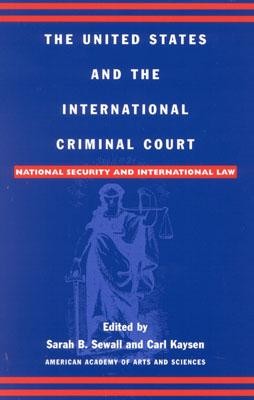| The United States and the International Criminal Court: National Security and International Law Contributor(s): Sewall, Sarah B. (Editor), Kaysen, Carl (Editor), Bass, Gary J. (Contribution by) |
|
 |
ISBN: 0742501353 ISBN-13: 9780742501355 Publisher: Rowman & Littlefield Publishers OUR PRICE: $66.33 Product Type: Paperback - Other Formats Published: August 2000 Annotation: A growing international consensus supports the idea of holding individuals responsible for the most egregious violations of human rights such as genocide. This consensus lies behind the recent efforts to create an International Criminal Court (ICC). The United States, however, has refused to support the ICC, citing concerns that the Court may pose a threat to national security. This volume brings legal, historical, military, and political perspectives to an examination of U.S. concerns about the ICC. The contributors assess not only the potential national security risks that would be associated with a functioning ICC, but also the potential costs to U.S. security that may result from opposing the Court's creation. |
| Additional Information |
| BISAC Categories: - Political Science | International Relations - General - Law | Criminal Procedure - Law | International |
| Dewey: 341.77 |
| LCCN: 00038736 |
| Physical Information: 0.63" H x 5.82" W x 8.98" (0.84 lbs) 288 pages |
| Descriptions, Reviews, Etc. |
| Publisher Description: American reluctance to join the International Criminal Court illuminates important trends in international security and a central dilemma facing U.S. Foreign policy in the 21st century. The ICC will prosecute individuals who commit egregious international human rights violations such as genocide. The Court is a logical culmination of the global trends toward expanding human rights and creating international institutions. The U.S., which fostered these trends because they served American national interests, initially championed the creation of an ICC. The Court fundamentally represents the triumph of American values in the international arena. Yet the United States now opposes the ICC for fear of constraints upon America's ability to use force to protect its national interests. The principal national security and constitutional objections to the Court, which the volume explores in detail, inflate the potential risks inherent in joining the ICC. More fundamentally, they reflect a belief in American exceptionalism that is unsustainable in today's world. Court opponents also underestimate the growing salience of international norms and institutions in addressing emerging threats to U.S. national interests. The misguided assessments that buttress opposition to the ICC threaten to undermine American leadership and security in the 21st century more gravely than could any international institution. |